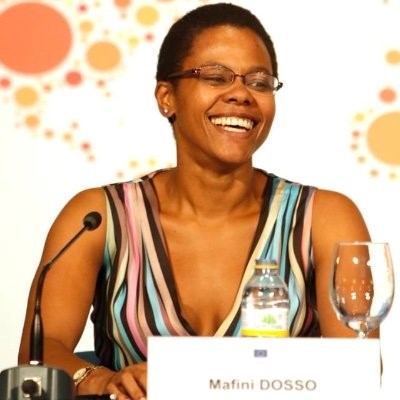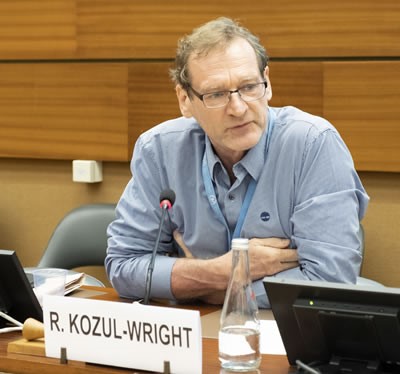7th EAEPE Pre-Conference for Young Scholars
Triple Crisis and the Alternative Futures: Research meets Policy
1 September 2021 ONLINE
at the 33rd Annual Conference of the European Association for Evolutionary Political Economy
2 - 4 September 2021 ONLINE
What is the Pre-Conference for Young Scholars?
The EAEPE seeks to institutionalize and deepen the involvement of and exchange with young scholars and student initiatives at the association’s annual conference. One of the key forums for young scholars at EAEPE is the annual pre-conference that comprises a series of workshops by distinguished scholars, accompanied by social space to interact and network. Organised by a team of young scholars, pre-conference was first launched in Genova (2015). This year, we invite young scholars to join the 7th pre-conference that will be held online and in an entirely different format as compared to its previous editions.
What we planned for this year
This year we will host a simulation exercise to discuss and propose alternative futures, in terms of research and policy relevance, as possible ways out of the ongoing ‘triple crisis’ of modern capitalism. The financial, climate, and health crises reveal the multitude of cracks in how our societies are organised and governed. In addition, the COVID health crisis made many inequalities and disparities particularly visible. Tackling these problems requires a lot of re-thinking, including how research- and policy-making communities interact.
We are pleased to have two senior policy experts with us this year:
 |
Mafini Dosso (European Commission’s Joint Research Center)Mafini Dosso, PhD, works as an economist and policy analyst at the Joint Research Centre (JRC) of the European Commission in Seville, Spain. The JRC provides scientific evidence to inform the EU policy cycle in various fields of decision making. Mafini is leading the project ‘Smart Specialisation Strategies with sub-Saharan Africa’, with an exploratory science for policy activity on Rwanda. It mainly aims at the identification of the pre-requirements in terms of policy, governance, and evidence for the development of a smart specialisation roadmap in Rwanda (an innovative and informal African economy). Mafini has about 10 years of experience, working at the science and policy interface on topics such as innovation and industry dynamics, technological change, intellectual property, smart specialisation, innovation networks and value chains, industry 4.0, and the sustainable development goals (SDGs) agenda of the UN. Initially, she was dedicated to the elaboration of R&D statistics and analyses on the worldwide leading innovating firms. During the last five years, Mafini has been producing evidence to support the African Union-European Union cooperation in the area of STI and to improve the evidence basis on the specific dynamics of innovation systems in sub-Saharan Africa. Her latest co-edited book gathers more than 25 authors from Africa and Europe to discuss the issues of Entrepreneurship, Technology Commercialisation, and Innovation Policy in Africa. |
 |
Richard Kozul-Wright (UNCTAD)Richard Kozul-Wright is Director of the Globalisation and Development Strategies Division in United Nations Conference on Trade and Development (UNCTAD). He has worked at the United Nations in both New York and Geneva. He holds a PhD in economics from the University of Cambridge UK and has published widely on economic issues including, inter alia, in the Economic Journal, the Cambridge Journal of Economics, The Journal of Development Studies, and the Oxford Review of Economic Policy. His latest book is the Resistible Rise of Market Fundamentalism (with Paul Rayment) and he has also edited volumes on Transnational Corporations and the Global Economy, Economic Insecurity and Development, Securing Peace, Climate Protection and Development, and Industrial Policy. Most recently, he co-edited, Transforming Economies: Making Industrial Policy Work for Growth, Jobs and Development, with the International Labour Organization (ILO). |
How you can contribute
To simulate this interaction we invite young scholars and early career EAEPE members to submit their proposals on how they would contribute to this exercise. Please submit your letter of interest (200-300 words) with some brief information about yourself, your research area, and one concrete suggestion on how would you advice policy-makers in a particular area/domain towards an alternative future: an alternative healthcare, research infrastructure, community-oriented banking, climate-related education, or racial and gender non-discrimination, or development strategies and global governance. Remember that policy-makers are very interested in your proposal and therefore please make it brief but informative.You will have the chance to develop it further during the actual exercise. The policy makers sit on various levels - local, national and supranational (EU) - so you may address any jurisdiction of your choice. Submissions should be sent via email to the Pre-Conference Team (eaepe.preconference@gmail.com) by 15 August 2021 (extended).
What will happen during the pre-conference
Format-wise, the Pre-Conference will kick off with a few inspirational talks led by senior experts that will set the ambitious tone of the overall simulation exercise. Participants then will be allocated to interdisciplinary teams in order to expand ideas and formulate concrete policy proposals for an alternative future(s). The teams will have the task to structure proposals following scientific reasoning/method while directly addressing given socio-economic problems/challenges. Groups will reconvene at the joint plenary discussion where alternative futures will be presented and evaluated by the senior experts. Overall, this exercise aims to simulate how research and scientific evidence can be translated into policy-related expert advice. The programme will be updating, preliminary version below.
Do you need any other information?
Please check our website for more detailed information and updates about the conference. For any questions, please contact the Pre-Conference Team – Merve Burnazoglu, Olga Mikheeva, Madeleine Böhm, Anne Schoenauer and Marco Amendola – at eaepe.preconference@gmail.com
All pre-conference participants are warmly invited to participate at EAEPE’s main conference as well.
Application to the Pre-Conference
Please submit your letter of interest (as indicated above) to eaepe.preconference@gmail.com and register for the pre-conference workshops through the EAEPE website (by choosing Only Pre-Conference Registration for the Annual EAEPE Conference) by August 15, 2021 (extended).
Registration fees
Participation in pre-conference is free of charge but admission is based on letters of interest (see above).
Schedule of the 2021 pre-conference
1 September 2021 (Wednesday - all times CET)
13:00 - 13:15 Welcome words by pre-conf team and local organizers of EAEPE conference
13:15 – 14:30 Plenary ‘Alternative futures’ - senior experts setting the scene
Speakers:
- Mafini Dosso (Economist and Policy Analyst at Growth and Innovation division of the European Commission’s Joint Research Center)
- Richard Kozul-Wright (Director of the Globalisation and Development Strategies Division in UNCTAD)
14:30 - 14:45 comfort break
14:45 – 16:00 3-4 Thematic committees each drafting policy recommendations (breakout rooms)
16:00 - 16:15 comfort break
16:15 – 17:30 Plenary and discussion: Thematic committees present their work and policy experts present their feedback
Contact: eaepe.preconference@gmail.com
